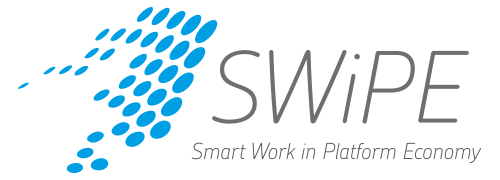
I have been pondering for a long time why cooperation in Finnish workplaces is not as good as it should be. Is it because of Finnish mentality, backwardness of the culture of debate, hierarchical leadership, inability to share responsibility and make decision together, a loss of trust, unworkable legislation – or what?
The surveys to citizens and employee representatives conducted by the STTK (Finnish Confederation of Salaried Employees) have resulted recurrent problems and shortcomings in leadership and management, information and dialogue, and opportunities to contribute to the development of the workplace. In fact, these are the things that build trust, engage employees, improve motivation and work efficiency, and thereby contribute positively to the productivity of the workplace. Workplaces, where these things are in order, are often successful and growing.
Trust and collaboration must be constantly built and developed in the workplace. The leaders must be aware of this and lead by example. If management is enthusiastic, open and committed to developing continuous interaction, it is easy for employees to be enthusiastic, open and committed.
On awerage, we Finns are not very good at receiving praise or positive feedback on our work. Even worse we are in taking criticism or different opinions and views. Feedback or other opinion is easily perceived as a critique or a false opinion. It is clear, however, that there are many different views and opinions at the workplace. It is essential that we learn to listen, understand and respect the views of others and seek solutions together. This requires a new kind of leadership and a levelling down the hierarchical leadership.
Genuine cooperation is not possible only by adhering to deadlines or by writing protocols, but by a common will and goal to build a functioning and confidential culture of cooperative work. The management and employees of the company should jointly commit to openness, information sharing, discussion and joint making.
The purpose of the present co-operation act is to define the rules of the game to promote better interaction and access to information and involvement at the workplace. The law has, however, become a pure act of termination, which is being dug up only when it is compulsory. However, building up cooperative activities requires perseverance and willingness.
There is a need for change of attitude and value to cooperate, but also the unworkable co-operation act needs to be reformed. The legislation should create effective and fair frames, as well as adequate rights and obligations to develop the workplace, promote cooperative activities and improve productivity.
The Finnish working life needs more positive drive and faith in the future. Leadership plays a big role here. The management at the workplace can either get the employees excited and committed to a common goal, or discourage and create confusion.
Good leadership creates better cooperation, which increases motivation and efficiency, which increases productivity. It is good for the management of each workplace to look at its own leadership, and to set a sufficiently ambitious goal and means for the development of genuine interaction at the workplace.
Katarina Murto is a director in STTK.
Translation by Marja Rautajoki.
